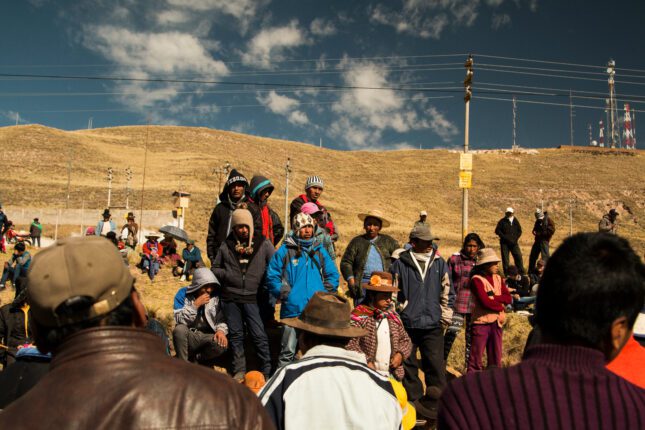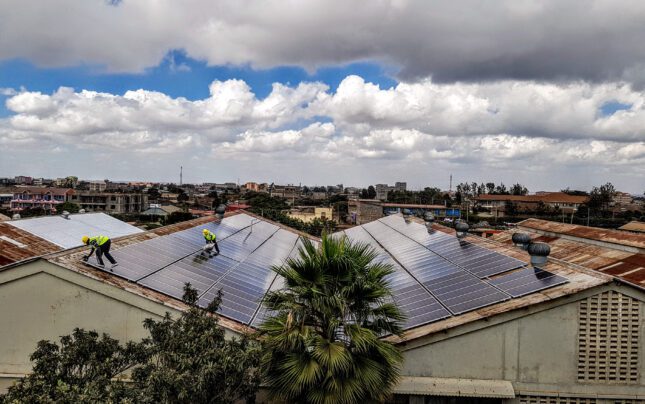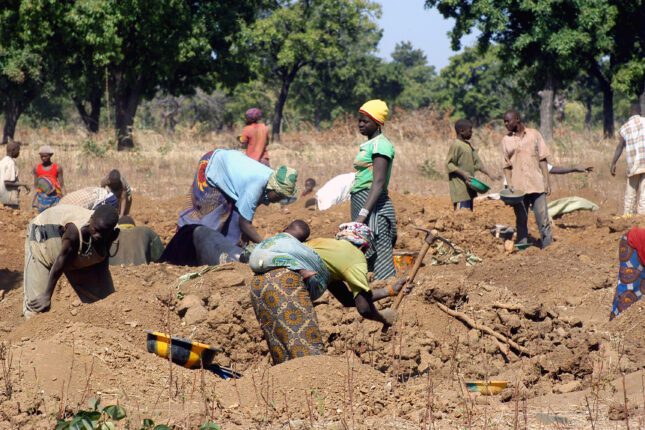-
High Standards in Mineral Supply Chains: A Business Case
›
Much of the current narrative surrounding critical minerals puts speed and competition in the foreground. Yet the how of mining matters immensely to create and maintain stable mineral supply chains. Reliable and diversified supply chains create win-win scenarios for all stakeholders by incorporating best-in-class environmental standards and true community partnerships.
-
Let’s Make Critical Mineral Lists More Useful!
›In December 2024, China banned exports of gallium, germanium, and antimony to the United States. Prices for these critical minerals soon reached all-time highs. The ban emphasized China’s dominance over the sector, including practically the entire graphite supply chain, 87% of rare earths refining, 70% of cobalt refining, and 60% of battery-grade lithium refining.
-
ECSP Weekly Watch | February 24 – 28
›
A window into what we’re reading at the Wilson Center’s Environmental Change and Security Program
EU Parliament Suspends Rwandan Critical Mineral Pact Over Links to DRC Conflict (Mongabay)
Rwanda and the DRC both have large reserves of critical minerals essential to the clean energy transition. Yet the EU has voted to suspend a cooperation agreement on mineral extraction in the region after the Rwandan-backed rebel group M23 seized key areas in the DRC’s eastern provinces.
-
Mining for Change: Obert Bore on Human Rights and Development Amid Zimbabwe’s Mineral Boom
›
As global interest in critical minerals heats up, countries like Zimbabwe—which holds Africa’s largest reserves of lithium—are facing new opportunities for investment and development. But these opportunities can also come with risks and challenges for producing countries. In this episode of New Security Broadcast, the Wilson Center’s Claire Doyle and Jennifer Nguyen are joined by Obert Bore, who serves as the Business & Human Rights Program Lead at the Zimbabwe Environmental Law Association. Bore is an expert in international trade, Chinese investments in Africa, and natural resource governance, and has long worked to advance policy reforms to strengthen human rights protection for communities impacted by mining.
A Chinese language (中文) version of this podcast is available on SoundCloud.”
-
ECSP Weekly Watch | February 3 – 7
›
A window into what we’re reading at the Wilson Center’s Environmental Change and Security Program
Indonesia Considers Paris Agreement Exit Following US Withdrawal (Mongabay)
The US withdrawal from the Paris Agreement has led other countries to reconsider their commitments to the international environmental treaty. In Indonesia, for instance, top officials have questioned whether developing countries should be expected to comply with the agreement as major polluters (including the US) opt out.
-
Could Japan and the US Support Latin America’s Critical Minerals Sector?
›
Cobalt, lithium, and copper are the critical minerals necessary to produce rechargeable lithium-ion-based batteries, and they are central to the electric vehicle (EV) supply chains in the energy transition. The importance of these minerals—and China’s strategic control of them—now compels the United States and its allies to diversify their supply chains for this essential resource.
-
US-Africa Energy Development: An Opportunity for the Trump Administration?
›China Environment Forum // Guest Contributor // December 12, 2024 // By Kalim Shah & Etchu Tabenyang
While traditional fuels likely will remain part of Africa’s energy portfolio for some time to come, the fossil fuel industry does face strong headwinds from a continuing global march towards alternative sources of clean energy. Indeed, the energy poverty experienced by nearly a billion Africans seems incomprehensible given the combination of massive untapped oil and gas resources, as well as available hydropower, solar and wind potential across the continent.
-
Children and Slaves are Mining our Critical Metals (and Not Just Cobalt)
›
This article is adapted from Vince Beiser’s “Power Metal” newsletter.
If you’ve heard anything about the dark side of the shift to renewable energy and digital tech—one of the main topics of my new book, Power Metal: The Race for the Resources That Will Shape the Future—you’ve probably heard about the children working in cobalt mines in the Democratic Republic of Congo (DRC). That particular outrage has been covered by major international news outlets, human rights organizations and another recent book, Cobalt Red. But it turns out there are many other places where children, as well as enslaved adults, are producing the metals that go into our electric cars and cell phones.
Showing posts from category minerals.










